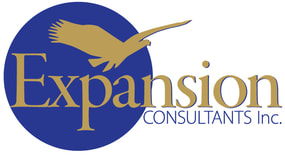Every year, one student is elected to represent all the colleges of optometry in the US, Puerto Rico and Canada as the AOSA’s OEPF National Student Liaison. More than that, they were selected because they have shown a passion and commitment to the organization and it’s mission. Kristin Adams is a 4th year student from the Inter American University of Puerto Rico, School of Optometry that serves as the liaison. Kristin has proven to be an up-and-coming leader and OD in her own right. I recently had the pleasure of speaking with Kristin about her life, accomplishments and her mission with the organization. We are excited to have her on board as the start of a new generation of Optometrists Changing Lives.
Please tell us a little bit about yourself, Kristin!
I was born and raised in Northeastern Minnesota. I graduated from the College of Saint Scholastica in Duluth, Minnesota with a Bachelor’s of Arts degree in Languages and International Studies and minor in Political Science while pursuing my optometry school pre-requisites.
I am a 4th year student at Inter American University of Puerto Rico School of Optometry. I chose Puerto Rico for the integration of the Spanish language and the amount of vision screenings on the island.
Currently, I am honored to serve OEP and the American Optometric Student Association as the National Student Liaison. My role consists of being the communicator between the organizations and the local liaisons. I also have the opportunity to write biannual contributions for the AOSA Publication, Foresight. In the last issue, my article explains and highlights all the benefits of OEP for student members.
On a more personal note, helping others and volunteering are important to me whether it’s in my local community or abroad. For over the last 10 years, I have volunteered with high school foreign exchange students. As I grew and made many friends from my yearlong exchange in Switzerland, I want to promote cross-cultural learning through helping host families and students. Last year, my husband and I opened our home in Puerto Rico to my younger Swiss host sister for her to attend high school, learn a new language, and experience a new culture. If anyone has questions about hosting a high school exchange student or being one, feel free to ask me!
I absolutely love animals whether it’s going for a ride on my horse, working with organic dairy cows, or taking my 2 dogs to the park. I also enjoy volunteering with my church’s youth group, baking, quilting, traveling, playing board games, and spending time with my husband, Tim.
You definitely have a passion for behavioral optometry. What sparked the interest?
When growing up, I never cared for school. My older brother and sister were straight-A students, so I was motivated to do well academically. Yet, it was difficult for me to work on my homework or read assignments. Starting in sixth grade, my mother made a deal with me in order to complete novels – if I read one chapter out loud, she would read the next chapter out loud. We did this for years. I never understood why my friends read books for fun. I met all the requirements to graduate high school with honors except completing ten classic literature novels. I still regret not graduating with that distinction, but at that time, it seemed so impossible.
Starting in junior high, I had frequent headaches. My parents took me to the medical doctor, the dentist, and the optometrist. They prescribed medications, performed surgery, and told me I could see 20/20; however, the headaches continued. No one had taken the time to address the true cause of my problems growing up. All of their methods were Band-Aids. No one saw that I had trouble converging my eyes.
By the time I began college, my academic workload tripled; I was studying large amounts. The headaches increased. I started to realize that I was unconsciously covering my left eye while reading textbooks. I then knew something wasn’t right with my vision. I soon had reading glasses with prism that alleviated my symptoms for a while. When I arrived at optometry school, I learned about convergence insufficiency, the world of vision therapy, and ultimately behavioral optometry.
I soon realized that my symptoms were not unique, and it made me realize that others were also out there undiagnosed with a range of visual conditions. It made me question what was happening with the children who were struggling with reading novels but didn’t have the same support or role models like my siblings? What about the children who had symptoms worse than mine? That’s when I read Dr. Paul Harris’s article from OEP, The Prevalence of Visual Conditions in a Population of Juvenile Delinquents. I was strongly moved and knew as an optometrist I could make an impact that could change the course of a child’s life; that was my future.
Another spark that lit the fire of my passion is the testimony of Robin and Jillian Benoit. I am thankful for their promotion of behavioral optometry as OEP speakers. Jillian’s Story: How Vision Therapy Changed My Daughter’s Life as well as the numerous testimonies in Dear Jillian: Vision Therapy Changed My Life Too cemented to me that vision is more than 20/20.
As I continue to learn more and dive into behavioral books, there is no doubt in my mind that behavioral optometry is my calling. There is an integrated and holistic approach, and I need to learn as much as possible about it to help my patients.
What got you involved with the OEP and how has your experience been with the foundation?
Actually, the reason I became involved with OEP is because of you, Nicholai! So, thank you very much! The first week of optometry school, you made a presentation as the OEP local liaison. It caught my attention, and I knew immediately that I wanted to help you arrange OEP events at school. That opened the door into meeting wonderful guest speakers, impacting fellow students, serving two years as local liaison at IAUPR, and now serving as National Student Liaison for OEP. It has also lead to my growing library of amazing OEP books; books that I have read, and more books that I cannot wait to read! This is something that I thought I would never say growing up!
My goal as National Student Liaison is to increase the presence of OEP to all schools of optometry in the U.S. and Canada. I want every student to take advantage of the great education OEP has to offer including the OEP curriculum courses, seminars, books, the Optometry & Visual Performance journal, its blog, and the Optometrists Change Lives program which makes speakers accessible to each school with the help of sponsors like HOYA. Currently, I am working with local liaisons and OEP to arrange events across the country. My goal is for students to continue using OEP resources after they receive their diploma.
My experience with the foundation has been nothing but fabulous. Everyone involved with OEP has been so welcoming and encouraging. It’s a relationship I plan to continue my entire life.
As part of the new generations of behavioral optometrists, how do you see yourself contributing to OEP after you cross that graduation stage?
One of my first steps after graduation is to obtain a yearlong residency. My immediate goal is to learn as much as I possibly can from OEP members and resources. There is such a fountain of knowledge available, and I want to soak up as much information as possible to continue OEP.
Throughout my lifetime, I see myself making a positive contribution to and with OEP. The foundation is doing great things in this world, and I want to continue being a part of it. My ultimate goal is to serve on the OEP Board of Directors. Education is very important, and I can see myself as an OEP lecturer across the country and world.
I also plan to perform research and write case reports to help progress the profession. As I learn from reading Optometry & Visual Performance, I would love to see my articles helping other practitioners through this outlet. Currently, I am very thankful to be a part of this OVP blog and hope to continue to contribute to it for years to come.
Being affiliated with OEP also means being part of other networks such as BABO and ACBO. You recently spent time in Australia during your externship rotations and had an opportunity to spend time at the ACBO conference! Can you tell us a little bit about your experience?
Yes! I spent time rotating through the clinics at the University of Melbourne and the Australian College of Optometry. It was a great experience seeing optometry in a different country as well as meeting wonderful people and of course seeing some beautiful landscapes and amazing wildlife!
As soon as I knew I was going to Australia, I brought up the Australasian College of Behavioural Optometry’s website to find information on their meetings. It was perfect timing because their annual conference featuring Dr. David Cook was during my time down under.
Everyone was very welcoming at the conference! Dr. Cook engaged the audience as he shared on strabismus and amblyopia in his lecture titled, Seeing Beyond Illusion. The new ICBO One app (which I recommend that you install on your phone) had an NACBO section which helped me integrate into the group. By the way, the ICBO One app is free and provides a way for behavioral optometrists across the world to connect.
One evening, there was a black tie affair with a “Phantom of the Ocular” themed dinner. Everyone was dressed to the nines. There was fascinating entertainment from an illusionist, honors and awards to outstanding optometrists and therapists, a fun photo-booth, and of course dancing! Never have I seen a dance floor fill so quickly. Australians know how to have a good time! OEP executive director, Kelin Kushin was even burning up the dance floor.
I can’t wait for the 8th ICBO conference April 26-29, 2018 in Sydney! Return to Oz! I look forward to seeing you there!
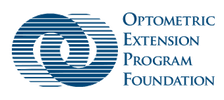
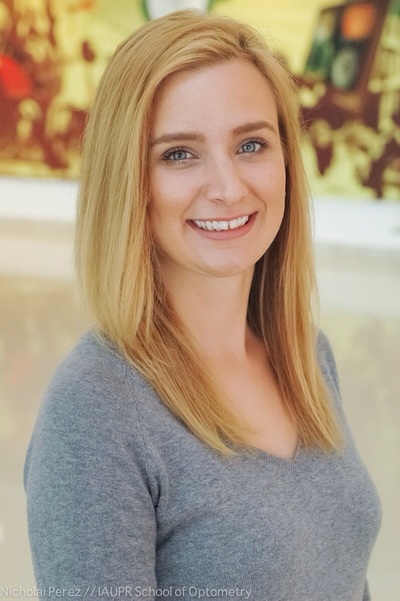
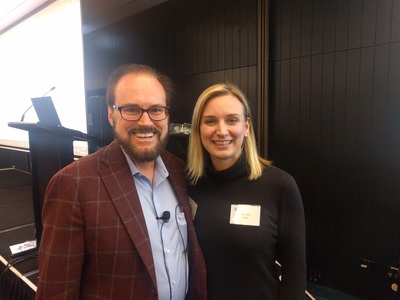
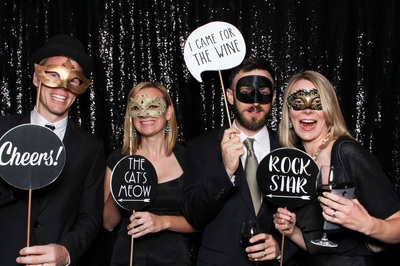
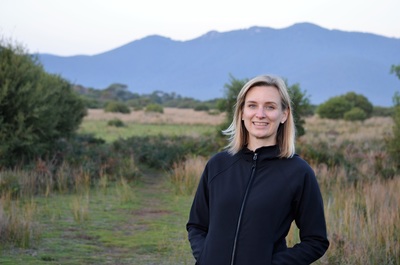
 RSS Feed
RSS Feed
